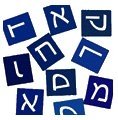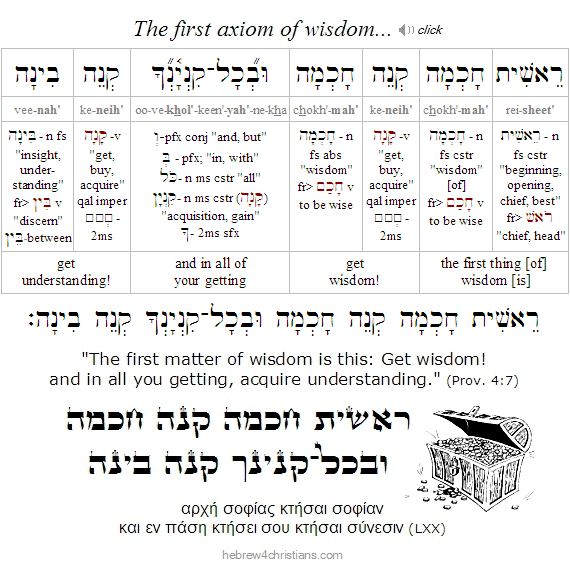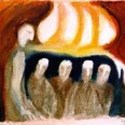|
This week's Torah portion (parashat Beshalach) contains some of the most dramatic episodes recorded in all of the Scriptures. Here we read about the great exodus of the Israelites on the day of Passover and Pharaoh's last-ditch pursuit of the Hebrew slaves. We read how the Shekhinah Glory held back Pharaoh's army, how the LORD split the Sea of Reeds so that the Israelites could safely pass through the waters, and how Pharaoh's forces were all drowned in the sea. We further read how God personally led the Israelites into the desert and sustained them by transforming "bitter water" into sweet water, sending manna from heaven, and providing a miraculous water source from the rock that Moses struck. Yet despite all the miracles and wonders performed on behalf of the Israelites, the people inexplicably seemed to "forget" about their miraculous redemption. Indeed, it was just a few days after the awe-inspiring deliverance from Egypt that the people began to murmur, complain, and kvetch. The sorry state of the Israelites was so bad that the Midrash Rabbah plaintively wonders how it was possible that the Israelites could have so quickly forgotten all of God's miracles performed on their behalf...
The story of the disgruntled Israelites teaches us that miracles are never enough to sustain our faith. Seeing isn't believing, but rather the other way around.... This explains why those church groups that emphasize "signs and wonders" often contain so many exhausted people. Miracles are insufficient for faith; people get excited about them while they occur, but they soon forget them and return to a state of desperation and despair. Necessarily the cycle must repeat itself, with ever-increasing claims of the miraculous, in order to keep the illusion alive.... In light of this, it is wise to consider that the passion for "signs and wonders" may be little more than a counterfeit of the real need to surrender and serve God. After all, truly loving the LORD with all your heart, with all your soul, and with all your strength is the goal of faith. A genuine heart of faith, then, is a miracle of a greater kind than that of splitting the Sea of Reeds.
Regarding the case of the redeemed Israelites, what has struck some commentators is not so much the incredible signs and wonders that the LORD performed on behalf of Israel, but rather the people's persistent inability or unwillingness to believe... Some of the Jewish sages have gone so far as to say that the entire Bible may be read as a book about God's apparent inability to teach the Jewish people how to be grateful. The same certainly can be said about many professing Christians today.
Lasting transformation of the heart comes from "following" the LORD God of Israel. As I've mentioned elsewhere, disciples of Yeshua are called talmidim (תַּלְמִידִים) -- a word that comes from lamad (לָמַד) meaning "to learn" (the Hebrew word for teacher is melamad (מְלַמֵּד) from the same root). In the Greek New Testament, the word for "disciple" is μαθητής (the word "math" comes from this), that is, a pupil of a διδάσκαλος, or a teacher. In other words, disciples of Yeshua are automatically "enrolled" in the school of truth, which is also a "school of suffering" (Col. 1:24). In the Torah the "daily sacrifice," or korban tamid (קָרְבַּן תָּמִיד), was offered to the LORD every morning and evening upon the altar, which corresponds to being a "living sacrifice" (i.e., korban chai: קָרְבָּן חַי) to the LORD (Rom. 12:1-2). We must take up our cross daily (Luke 9:23). Yeshua plainly said: "For this purpose I was born and for this purpose I have come into the world -- to bear witness to the truth. All who are of the truth listen to my voice" (John 18:37). It is hard to imagine a follower of Yeshua who does not love, study, and value the truth...
ראשׁית חכמה קנה חכמה
ובכל־קנינך קנה בינה
rei·sheet · chokh·mah · ke·neih · chokh·mah
oo·ve·khol-keen·yah'·ne·kha · ke·neih · vee·nah

"The first matter of wisdom is this: Get wisdom!
and in all your get, acquire understanding." (Prov. 4:7)

Hebrew Lesson
Proverbs 4:7 Hebrew reading (click):
 |
The Hebrew word for education is chinukh (חִנּוּךְ), a word that shares the same root as the word for "dedication" (i.e., chanukah: חֲנֻכָּה). True education of the Scriptures is therefore foundational to being a student of the Messiah. We are called to "rightly divide" (ὀρθοτομέω, lit. "cut straight") the "word of truth (2 Tim. 2:15). Among other things, then, following Yeshua means becoming a student of the Jewish Scriptures that He loved and fulfilled (Matt. 5:17-18; Luke 24:44-45). Only after learning from Yeshua as your Teacher will you be equipped to "go to all the nations and teach" others (Matt. 28:19). This is accomplished not merely by explaining (propositional) doctrine but by kiddush HaShem -- sanctifying the LORD in our lives (1 Pet. 1:15-16). As the sages noted long ago: "Upon three things the world does stand: upon the Torah (truth), upon worship, and upon acts of lovingkindness" (Avot 1:2). We are a "living letter" sent to the world to be "read" (2 Cor. 3:2-3).
It has been said that it was easier for the LORD to get Israel out of Egypt than it was for Him to get Egypt out of Israel... The LORD knew the process would be an arduous one, requiring 40 long years of study in the desert under the instruction of Moses, and yet despite all this the people "were unable to enter because of unbelief" (Heb. 3:19; 4:11; Psalm 95:7-11). This is a truly sobering warning, and we are encouraged to open our hearts to the miracle of God's love for us. "Today, if you hear His voice, do not harden your hearts." May it please God to help us make a new commitment to study and to live the truth of the Torah and Scriptures for the glory of His Name. Amen.
|




